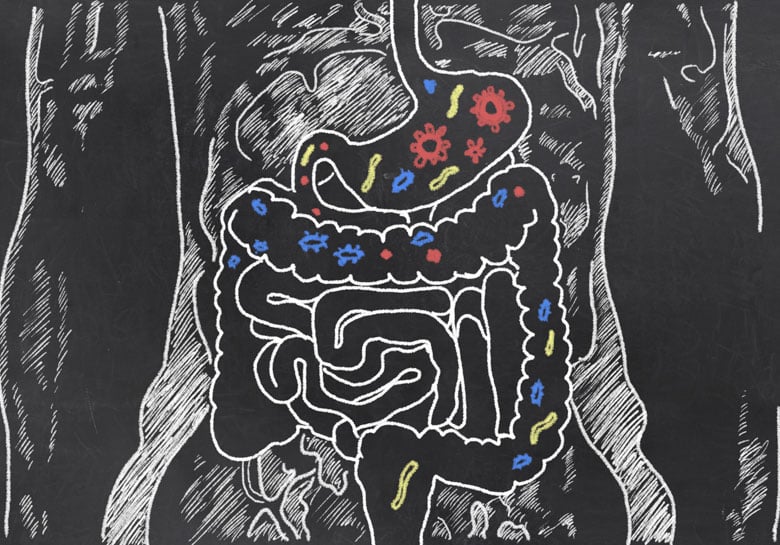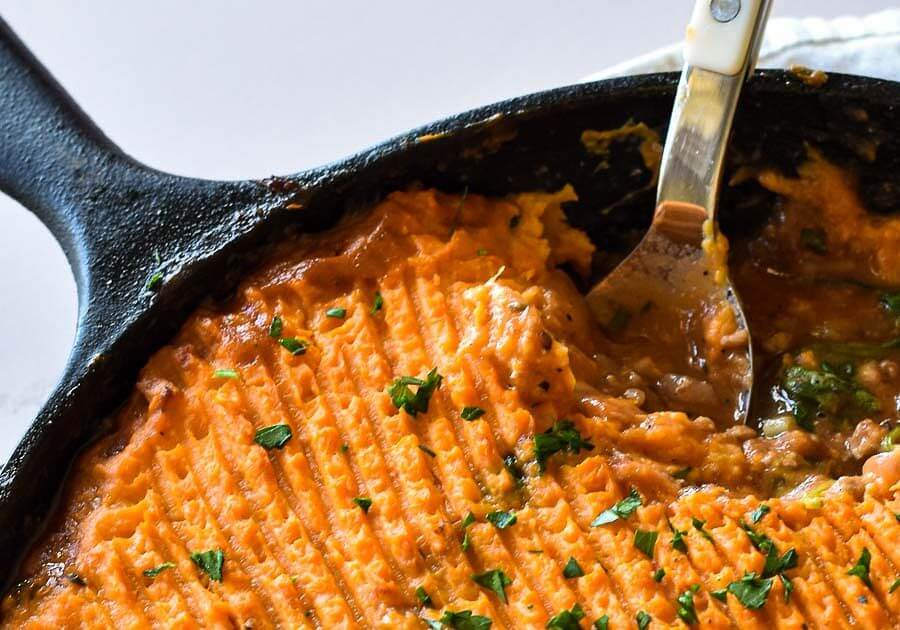Our Team Listens
Your symptoms are unique to you. Your nutritionist tracks your food with you and makes specific recommendations to help you feel better.
Whether you learn best with one-on-one support or in a small group setting, we have the perfect program for you.
We also offer a wide array of self-guided materials, empowering you with valuable resources to further support your transformation.
How Nutrition Coaching Works
Our programs are meticulously designed to help you achieve your health goals while enhancing your overall well-being.
We provide personalized counseling and unwavering guidance, ensuring that every step of your journey is met with success.
Take Our QuizOnPoint's team of highly skilled online dietitians and nutritionists are dedicated to empowering you with the knowledge and tools to cultivate sustainable habits that lead to long-lasting success on your health and wellness journey.
Let us help you build the perfect IBS Diet

First things first: work with your doctor and a GI Specialist to diagnose your Irritable Bowel Syndrome (IBS). The condition is typically associated with cramping, abdominal pain, bloating, gas, diarrhea or constipation, or all of the above (ugh). For treatment, find a nutritionist for IBS.
As you may know, there are two different types of IBS: IBS with Constipation (IBS-C), and IBS with Diarrhea (IBS-D). Before digging in, learn more about IBS-C, IBS-D, and the major differences between the two conditions. Some people will experience symptoms of both, so don't freak out if all of these symptoms apply to you.
Like many other conditions, you will experience these symptoms along a sliding scale of severity. Luckily, when you have a "flare up", there are things you can do to relieve your discomfort. Call it a better IBS diet. Read on for our recommendations for how diet can help relieve your IBS symptoms.

Irritable bowel syndrome, also known as IBS, affects the large intestine and can cause bloating, gas, constipation and sharp stomach pains. IBS can strike at any age and usually gets worse when you are stressed. Although the exact cause of IBS is unclear, researchers believe IBS is caused by irregular intestine muscle contractions, nervous system abnormalities, inflammation, infection, and changes in gut bacteria. Although IBS is considered a chronic disease, you can manage and even eliminate your symptoms through specific IBS diet changes.
Misinformation about IBS diets is rampant. Just ask the Google machine. You will find thousands of results, with recommendations as varied as low-glycemic, low-carbohydrate, low-fiber, high-fiber, low-fat, no-high-fructose-corn-syrup, and detox diets (wow, that was a mouthful).
The IBS head-scratching exists among patients, physicians, and even nutritionists for IBS. Our team has identified three main misconceptions:
IBS can only be managed with medication:
NO-NO-NO! (did we say no?!) Because IBS has multiple causes, existing medication does not always work. Medication is one piece of a complicated puzzle. However, improving your diet can be an effective first step in alleviating your IBS symptoms. Your doctor, GI specialist, and nutritionist for IBS can help build a multi-faceted regimen to help you feel better.
IBS diets can be fixed with one "golden ticket":
'Just have your patient eat more fiber.’ Sadly, this isn't true. Although a higher-fiber IBS diet works for some, it doesn’t work for all. For some clients, high-fiber IBS diets can even make symptoms worse.
IBS, Crohn’s disease and ulcerative colitis are all basically the same thing:
Also false. Although all of these conditions are GI issues, each has different root causes and slightly different treatment regimens. The data bear this out: IBS is two to three times more common in individuals with inflammatory bowel disease than in the general population.

Food: Many people have worse IBS symptoms when they eat or drink certain foods or beverages. These foods include wheat, dairy products, citrus fruits, beans, cabbage, milk and carbonated drinks.
Stress: Most people with IBS experience worse or more frequent signs and symptoms when they are stressed. But while stress may trigger your symptoms, it doesn't cause them.
Hormones.Women are twice as likely to have IBS, which might indicate that hormones play a role with IBS. Many women report that their IBS symptoms are worse during their menstrual periods.
The short answer is no, but scientists have a few ideas about what causes IBS
Muscle contractions in the intestine.
The walls of the intestines are lined with layers of muscle that contract as they move food through your digestive tract. This is how digestion works! Stronger contractions that last longer than normal can cause gas, bloating and diarrhea. To the contrary, weak intestinal contractions can slow food passage and lead to hard, dry bowel movements.
Nervous system.
Your digestive organs are covered with nerves. That's what makes you feel hungry, full, and everything in between. Abnormalities in the nerves in your digestive system may cause you to experience increased discomfort when your abdomen stretches from gas or stool. Irregular signals between your brain and intestines can cause your body to overreact to changes that normally occur in the digestive process. The result: IBS pain, diarrhea or constipation.
Inflammation in the intestines.
Some people with IBS have an increased number of immune-system cells in their intestines. Like other suspected causes, this immune-system response is associated with pain and diarrhea.
Severe infection.
IBS can develop after a severe bout of diarrhea (gastroenteritis) caused by bacteria or a virus. IBS might also be associated with a surplus of bacteria in the intestines (bacterial overgrowth).
Changes in gut bacteria (microflora).
Microflora are the "good" bacteria that reside in the intestines and play a key role in health. Research indicates that microflora in people with IBS might differ from microflora in healthy people. This is why probiotics may help to alleviate IBS.
Read our full piece on IBS causes here.

As you know, everyone's IBS symptoms are different. For some, the most common symptom is constipation. For those with IBS-C, constipation is associated with stomach and abdominal pains, as well as bloating and straining to go to the bathroom. But know this: this symptom may come and go over time. Doctors may even define constipation differently than you do. The doctor definition is "hard, pellet-like stools", while many individuals define constipation as having difficulty going to the bathroom, or the infrequent nature of going to the bathroom.
Passing stool three times per week is a good baseline for whether you should talk to your doctor about IBS-C treatment. Doctors and scientists think that constipation is caused by two main things:
Treatment includes both medical and dietary improvements. Like broad IBS recommendations, non-medical treatments include slowly increasing fiber intake, drinking more water, and even increasing physical activity such as walking. Medical options include over-the counter drugs, prescription medicines, and supplements such as priobiotics.
Read more about IBS-C, including detailed treatments and ways to alleviate your symptoms.
IBS with diarrhea has many of the same symptoms as IBS-C. The main difference exists in the main symptom: diarrhea vs constipation. Loose and frequent stool is the main ailment from IBS-D. There are few specific ways to alleviate diarrhea:
Read more about IBS-D, including detailed treatments and ways to alleviate your symptoms.
Many symptoms are shared between IBS-C and IBS-D. What's more? Some people experience the whole gamut of IBS symptoms, which doctors call IBS-M (short for IBS-Mixed Bowel). The common symptoms include:
The main difference is how constipation and diarrhea impact people with IBS. A combination of diet, medication, and lifestyle improvement can help you get your IBS under control.
High-gas foods such as broccoli stems (the heads are good!), cauliflower, cabbage, and beans
Carbonated beverages
If you are eating fruit for IBS management, make sure to peel your fruit and avoid fruit juice.
Chewing gum or drinking liquids through a straw. Why? Both of which can lead to swallowing air, which causes more gas
Fried or other high-fat foods
Avoid large meals, which may promote cramping and/or diarrhea
Minimize consumption of foods high in lactose, such as milk, ice cream, and soft cheeses, especially if lactose intolerance is suspected
Avoid or minimize alcohol and caffeine intake, as both substances can stimulate the intestines and lead to diarrhea
Avoid artificial sweeteners that contain sugar alcohols, such as sorbitol, mannitol, and xylitol, which may cause diarrhea. These artificial sweeteners are commonly known as Splenda, Sweet N' Low, and Nutrasweet
Avoid High-FODMAP foods. FODMAPs are un-absorbable carbohydrates that act as substrates for bacterial fermentation and gas production, potentially triggering GI symptoms
Avoid gluten. Your doctor may recommend an IBS diet that avoids gluten—a protein found in wheat, barley, and rye—to see if your IBS symptoms improve. Foods that contain gluten include most cereal, grains, and pasta, and many processed foods. Some people with IBS have more symptoms after eating gluten, even though they do not have celiac disease.
A word of caution: because everyone's IBS situation is different, not all of these foods will trigger IBS symptoms in every person. The list above suggests foods that commonly cause IBS symptoms.
There are many ways that an IBS Nutritionist can help you manage your symptoms by building a personalized plan for you. Read more about our approach here.
Eat smaller, more frequent meals...why? because they are easier to digest!
Love savory foods? Your stomach can better handle hard cheeses, lactose-free milk, lactose-free ice cream, and low-lactose or lactose-free yogurt or kefir. These products are either low- or lactose-free
Drink plenty of fluids (i.e. water!) to help alleviate constipation
When it comes to Fruits and IBS, our IBS Nutritionists recommend cooking your fruit. Focus on Low FODMAP fruits for IBS. We even share a few favorite recipes here!
Foods rich in soluble fiber, such as oatmeal, oat bran, low FODMAP oranges and strawberries, nuts, and low FODMAP carrots
Our IBS Nutritionists also suggest eating more fiber. Fiber may improve IBS constipation because it makes stool soft and easier to pass. The 2015-2020 Dietary Guidelines for Americans recommends that adults should get 22 to 34 grams of fiber a day.
Two types of fiber are:
Soluble fiber, which is found in beans, fruit, and oat products. Research suggests that soluble fiber is more helpful in relieving IBS symptoms.
Insoluble fiber, which is found in whole-grain products and vegetables
To help your body get used to eating more fiber, add higher fiber foods to your diet bit by bit. Blasting your system with fiber can cause gas, which can trigger IBS symptoms. Adding fiber to your diet slowly, by 2 to 3 grams a day, may help prevent gas and bloating. You can learn more about how to match your IBS sub-type with a fiber diet here.
In addition to the tips we shared above, one of the most common IBS diets is a low FODMAP diet. Read more about our low FODMAP diet recommendations.
There are many ways that an IBS Nutritionist can help you manage your symptoms by building a personalized plan for you. Read more about our approach here.

Sometimes it's best to take a detailed and regimented IBS Diet approach. Below is the process we follow with our clients:
There are many ways that an IBS Nutritionist can help you manage your symptoms by building a personalized plan for you. Read more about our approach here.
If your physician or nutritionist for IBS has ruled out other conditions such as celiac disease and lactose intolerance, you should move forward to a complete food log:
Log your specific food intake and symptoms for seven days. Include time, food/supplement, amount, activities, and the severity of your symptoms during the day
Share the results with your dietitian (hopefully us!). We review your log to find connections between your food intake and your symptoms. We use this information to identify foods and activities that cause issues.
If we determine that you do have IBS, the ADA’s Nutrition Care Manual suggests a comprehensive nutritional assessment as a next step. This nutritional assessment includes:
Complete food history: log your food using apps such as MyFitnessPal or FitBit App
Anthropocentrics: a fancy way of saying body measurements
Biochemical and clinical parameters: testing for certain molecules in your body, largely taken via blood tests
Swallowing problems: some people note that IBS affects their esophagus
Nausea: while often associated with IBS, other GI issues can cause nausea
Vomiting: talk to your doc immediately. Vomiting is not a typical IBS symptom.
Constipation: a hallmark symptom of IBS-C
Diarrhea: a leading symptom of IBS-D
Heartburn: while often experienced together, much like nausea, scientists do not believe that heartburn causes IBS
Food allergies and intolerances: part of a full nutrition assessment
Cultural food practices: sometimes spicy foods can trigger IBS
Alternative therapies in the assessment: ask your nutritionist for more details
Want to learn about what each of these topics means and why it is important
Read about a full nutrition assessment here!
If constipation is one of your symptoms, you should consider adding more fiber to your diet. Fiber is a key ingredient in making it easier to go to the bathroom. A study from National Institute of Diabetes and Digestive and Kidney Diseases (NIDDK) estimates that most people only eat about half of the recommended amount. On the other hand, if your IBS is associated with diarrhea, work with your doctor and dietitian to better track your dietary fiber and determine if you should reduce the amount of fiber in your diet. Keep soluble fiber (found in apples, berries, carrots), and reduce insoluble fiber (grain, nuts, broccoli, tomatoes). Oftentimes, small adjustments to the amount of fiber in your diet can improve your IBS symptoms. If you think you may have IBS, take our quiz.
Read more about balancing your IBS subtype with eating the right type of fiber.
Even if you do not have celiac disease, a gluten sensitivity may trigger IBS symptoms. Your doctor can perform tests to determine if you have celiac disesase. Closely monitoring your diet can help you determine if you may have a gluten sensitivity. Cutting back on gluten-rich foods (think, bread, pasta, beer) could help. Check out our full take on the gluten craze.
A dietitian can help you complete an elimination assessment. The purpose is to methodically determine the specific foods or ingredients that bother your digestive system. Note that the complete process requires discipline, logging your food, and keeping track of your symptoms for 20 - 30 days. Check out our write up for a full elimination diet to get a better sense of how the process works.
Although dietary fat itself does not have a direct connection to IBS, many high-fat foods are both low in quality and low in fiber. In general, high quality foods will tend to be lower in fat. These foods include lean protein, low FODMAP fruits, non-cruciferous vegetables, and low-fat dairy.
Scientific research has not provided definitive evidence that a "Keto-like" diet can alleviate IBS symptoms. A small study did show improvements in a small sample size. However, other studies do contradict these findings. The Keto Diet has drawn attention in recent years.
Like with Keto, there is no scientific link between the Paleo diet and IBS relief. Anecdotal methods suggest that a "whole-foods" approach can improve one's digestive issues. We recommend a high-quality food diet for general health purposes. GI benefits would be signs of overall improved health. Check out more about the Paleo Diet and IBS.
There are many ways that an IBS Nutritionist can help you manage your symptoms by building a personalized IBS Diet for you. Read more about our approach here.
Take a deep breath; it's a mouthful: FODMAP stands for fermentable oligo-, di-, and monosaccharides and polyols.
In other words, FODMAPS are carbohydrate-containing foods that can cause gastrointestinal discomfort. A low-FODMAP approach is considered a short-term elimination IBS diet, not a forever diet. A low-FODMAP diet has two parts:
The first part is to follow a very strict diet that eliminates "high FODMAP foods" which are many foods known to cause IBS for 4-6 weeks
The second part of the diet involves adding previously eliminated foods back into your diet one at a time to identify gastrointestinally.
Click HERE to read more about how a low-FODMAP diet can alleviate your IBS
There are numerous traditional drugs on the market to treat IBS. Your healthcare providers can determine what is best for you based on your specific circumstances. However, because there are numerous causes and triggers to IBS, we believe that a proper IBS diet is a key part to living comfortably with gastro-intestinal issues. If you think you may have IBS, take our quiz.
Here are a few non pharmaceutical interventions to try:
Practice mindfulness: finding ways to de-stress can also calm your digestive system
Incorporate probiotics: a quick and simple change, eating probiotics has been shown to relieve IBS symptoms
Over-the-counter medicines such as immodium or miralax can relieve diarrhea; however, they likely will not fix the underlying causes of your symptoms
Prescription medicines: studies have shown that despite their side effects, prescription medicines do their job well
Want more details? Read our full write up on treatment options and medication HERE!
Traveling for anyone can be stressful, but traveling with IBS presents many challenges that can make any trip feel overwhelming. Here are some tips to help manage your IBS and leave your worries at home while you take your dream vacation!
IBS flare-ups can happen anytime, anywhere. Being prepared and knowing what to do when your IBS symptoms are affecting your work life can help you stay on time and on track. Here are some tips on how to clock in to your job and clock out on IBS.
Click HERE to learn more about how you can manage your IBS while at work.
The holidays are a time of joy and fun but can also be a time of stress and unpredictability. Holiday gatherings are often full of IBS triggers. It is important to plan ahead for the holiday season so you are able take part in the festivities while feeling at ease. Here are some tips to ensure you have a plan in place just in case your IBS symptoms decide to show up to the party too!
Click HERE to learn more about how you can manage your IBS during the holidays.
YES! Regular exercise can help you manage your IBS in three main ways:
However, not all forms of exercise are created equal. Certain exercises may speed up or slow down your GI system, so tailor your workout depending on your IBS type.
Read more about the exercises to try for IBS-C and IBS-D
The direct costs include diagnostic tests, medications, and physician visits -- estimated to range from $1.5 billion to $10 billion. Patients with IBS have been found to have a greater number of healthcare visits per year than population controls. The indirect costs, including diminished productivity or missed work, are estimated to be as high as $20 billion, although this estimate is based on IBS patients who sought medical attention and is likely to be much higher.
What's behind all these numbers? Read the full breakdown HERE.
If you think you may have IBS, take our quiz.

Your symptoms are unique to you. Your nutritionist tracks your food with you and makes specific recommendations to help you feel better.

Based upon your daily routine, we will build a custom plan to help alleviate your GI and IBS issues.

Success does not happen overnight. If something isn't working quite right, we make changes right away.
“My team and I would be honored to be part of your health journey! Our priority is your health and happiness; no goal is too big or too small. We look forward to working with you soon!”
